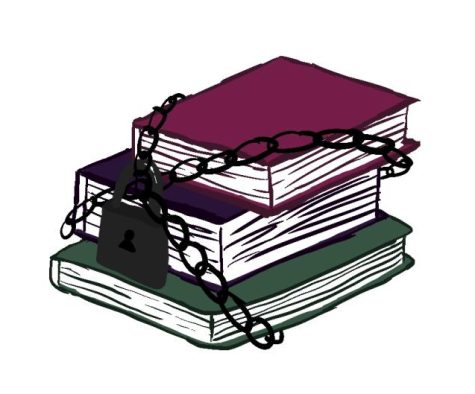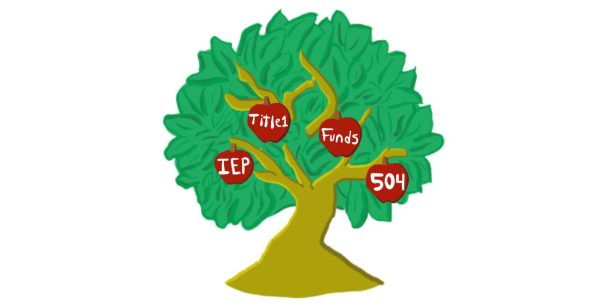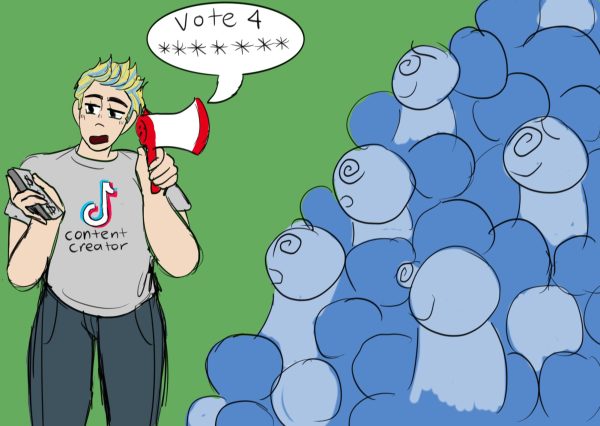Banning books does not benefit society

We are introduced to books at the very beginning of our lives up until the day we die. Whether it be fictional stories, children’s books, graphic novels or textbooks, books are a crucial form of education for the public. However, in recent years, book banning in schools has restricted access to education and awareness of social issues around the world.
This is shown when PEN America—an organization that stands at the intersection of literature and human rights to protect free expression in the United States and worldwide—mentions the number of books that have been banned. They state that from July 2021 to June 2022, “2,532 of individual books [were] banned,” which affected 1,648 unique book titles.
It is iniquitous for politicians and school administrators to censor expression and social issues through banning books. Some may argue that individuals advocate banning certain texts in fear that students will be negatively influenced by the information. However, this form of censorship is abused to keep students away from certain viewpoints nowadays.
PEN America addresses that 674 of the books addressed lesbian, gay, bisexual, transgender, queer and more (LGBTQ+) themes. 659 of the books had prominent characters of color. 338 of the books brought racism into light. 357 of the books contained “description of sexual experiences”—including teen pregnancy, sexual assault, abortion, “as well as informational books about puberty, sex or relationships.” 161 of the books focused on activism and human rights. 141 of the books were memoirs and biographies. The last 64 books reflected “religious minorities, such as Jewish, Muslim and other faith traditions.”
Schools ban books to prevent any literature that may include profanity, graphic violence, sexually explicit scenes and other inappropriate aspects for a certain level of students to read. However, the data, mentioned above, collected from PEN America states otherwise. The data blatantly shows schools—a place intended to educate students—taking advantage of banning books for their benefit to cover a blanket on ideologies they disagree with. Fahrenheit 451, written by Ray Bradbury in 1953.was one of his most popular novel, yet the most common banned book in the country. The novel follows Guy Montag—the protagonist—through a futuristic dystopian society, where “the media, overpopulation and censorship has taken over.” In this society, books are forbidden due to the fact that it allows readers to question and think. Moreover, firemen are viewed as “a destroyer of books rather than an insurance against fire.” The censorship that is distinctly portrayed in this work inherently creates an environment where history is unknown and the citizens are uneducated. Although some may believe that this is nothing but a fictional story, this “dystopian” world Bradburry created was “inspired by the Nazi book burnings that occurred in the 1930s,” a very real situation, according to English teacher Jordan Gray.
For context, the Nazis began burning books after the Nazi Party took control over the government. Mentioned by Book Riot—an organization that advocates for diverse books— more than 25,000 “un-German” books were publicly burned. This was to censor the “works of prominent Jewish, liberal and leftist writers” and make sure their words and messages were oppressed.
Schools must not mirror this unfortunate fragment of history in the slightest bit. Banning books can prevent students from being aware of social issues, recognizing representation and promoting self-expression. By silencing the voices of minority and marginalized communities, society will be incapable of advancing and being inclusive. Although some may argue that exposing children to “mature” topics may interfere with their development, they will struggle with understanding and accepting different cultures and worldviews because they weren’t exposed to new ideas when they were developing.
For a country where the majority of the people are patriotic, we are progressively losing our grip on the First Amendment, which protects “freedom of speech, the press, assembly and the right to petition,” according to the White House. Statista finds that 65 percent of the population was “extremely proud to be American” in 2022. As a country that holds power, we must recognize communities that are constantly deprecated—possibly influencing other countries to be more accepting and open-minded.
As more bills like Georgia’s Senate Bill 226—a bill for “local school system to address complaints submitted by parents or permanent guardians alleging that material that is harmful to minors has been provided or is currently available to a student”—are establishing in states including Kentucky and Arizona, schools mustn’t censor representation of minorities and social issues to avoid the topic.

As a senior and Editor-in-Chief of BVH’s the Crusader, I hope to guide the publication to continue publishing articles that have an impact on our community....

I am currently a senior at Bonita Vista High and this is my second year on staff as a Features Editor. I was previously the Videographer and chose to...




